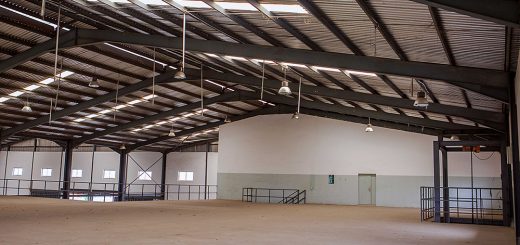The Nigerian Logistics Industry in Troubled Times: Some Tips for Staying Competitive
In the face of enormous infrastructure deficit, operational inefficiencies, port congestion, extremely cumbersome cargo clearance processes, high cost of transportation, non-compliance, and huge competency gap across several industry verticals, the Nigerian logistics industry has also had to grapple with the economic consequences of a global (covid-19) pandemic.
The economic implication of the lockdown and the strict restrictions that followed exposed the country to a precarious situation that further worsened the already weak underlying economic conditions. The pandemic cum lockdown triggered a free fall in oil prices, FOREX shortages, inflation, unemployment, a sharp decline in cargo volumes, high and volatile logistics costs, or the general cost of doing business.
Though, with relatively stable oil prices, and the resumption of key economic activities, the country continues to bleed from the scars of the pandemic. In contrast, logistics service providers have continued to grapple with high transportation costs, increasing global freight costs and operational delays resulting from port congestion, and limited physical contact with customers, among many other challenges that cannot be exhausted in a single article.
For the average logistics industry player, certain performance considerations can be key to their competitiveness, and important steps for cushioning the effects of the covid-19 induced economic blisters may be achieved based on the following:
Proper Logistics Planning:
The first and most critical step is planning for every job before it begins. Failure to do this will disrupt the entire delivery objective and unlock costly consequences. In other words, the estimated transit time from pick-up, and transportation, to delivery of shipments to the designated location requires the effective channelling of the resources (people, finance, trucks, documents, IT) required for achieving the desired result. Thoughtful planning helps to save time, effectively manage costs, guard against potential failure, and increase mutual profitability.
Promote Efficient Transportation:
Logistics Managers should, more than ever, extensively analyze and brainstorm on issues pertaining to efficiency in relation to delivery speed and cost by:
• Determining the best delivery routes.
• The most cost-effective transportation option(s).
• Measure the expected results.
Performance Measurement and Improvement on Feedback Obtained:
It can be challenging to set smart goals and plan effectively without measuring performance and obtaining customer feedback. Internal Performance in relation to services rendered to customers should be tracked daily or weekly, depending on the volume of activities, and measured in line with three primary determining metrics such as:
• Cycle time metrics – including turn-around time for quotation and cargo transit times, and last-mile delivery timelines.
• Cost metrics vs estimated budget.
• Service metrics vs service requirements or customer expectations
Compliance:
There is a growing need for increased stakeholders’ support for the NPA e-Call-up system (where trucks can only be around the port complex when they have been called up from designated truck parks) will not only promote efficiency but improve Nigeria’s ranking on Global Logistics Performance Indices. All industry players and agencies must collectively support this highly innovative scheme to make it a success and guarantee much greater ease of doing logistics business in and around Lagos, especially.
Develop the Export Market:
Key industry players need to collaborate with the Nigeria Export Promotion Council (NEPC) to develop the export market because, apart from Oil export, the countless opportunities in the export sector remain either under-tapped or untapped. Once maximized, this will boost the flow of FOREX into the Nigerian economy and go a long way in bridging the existing trade imbalances.
Increase Collaboration:
Recent findings have shown that the world is gradually shifting from traditional competition to collaboration. Third-party logistics providers must now seek strategic partnerships to shore up areas of limited capacity. However, studies have shown that the capacity crunch will further deepen the woes of marginal industry players. Players with the capacity to speedily deliver huge volumes and consistently provide tailored logistics solutions require a great deal of collaboration to achieve more, compete better, and able to maintain their long-term goals.
In conclusion, while the foregoing recommendations are a few among many ways of pulling through some of the challenges the Nigerian logistics industry is currently experiencing, industry players must now articulate plans and strategies for remaining competitive in the industry now and in the future.
Read more: Common Logistics Problems in Nigeria and How to Solve Them



